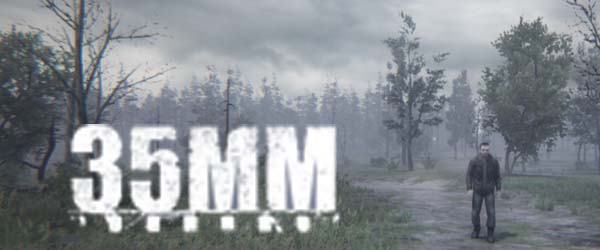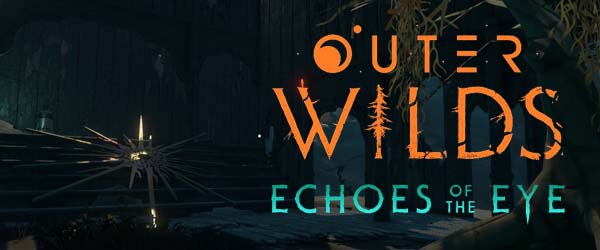
While I was neck-deep in the 2020 editions of Axis Football and Maximum Football, another small indie football game slipped under my radar. Legend Bowl was in early-access on Steam for 2 years before its 1.0 release in fall of 2021. Its retro, pixel-art graphics caused me to initially dismiss it as just another nostalgia arcade game -- another remake or knock-off of Techmo Bowl.
But YouTube comments, tweets, and a discount during a Steam sale have finally convinced me to check it out. After all, Legend Bowl was awarded "best alternative sport game of 2021" by Operation Sports, so it must be doing something right!
In those 2 years since going into early access, Legend Bowl has resisted the urge to just release an unfinished game and re-sell annual incremental upgrades to gamers, the way that almost every other sports game does -- whether it's licensed or not. Instead, Super Pixel Games is confident enough in the game that it will continue to sell based on quality and word-of-mouth. Its creator seems more than happy to treat Legend Bowl as a living product, providing regular feature updates, bug fixes, and so forth without feeling the need to charge us full-price, again, for them. The game has been successful so far, and I'm sure there will, eventually, be a sequel. But in the meantime, I am thrilled that I do not have to re-review a nearly-identical football game each fall.
I initially dismissed Legend Bowl as just another Techmo Bowl clone.
Pixel-perfect simulation?
Don't let the pixel-art fool you. Legend Bowl is not just a casual arcade football game. It can be enjoyed that way, for sure. It's simple enough to pick up and play. Nevertheless, Legend Bowl is grounded in sound, fundamental football concepts.
Perhaps the first thing that gamers will notice is the incredibly slow pace of play. The on-field action is slow, allowing the user plenty of time to react to read the opponent and react to what is going on, whether I'm running the ball, passing the ball, or playing defense.
Running is not simply a race to the edge, as in so many other football games that have poor containment and pursuit angles. Cutting back inside, against the grain, is often a great way to pick up extra yardage or break a huge play, especially if my blockers are in good positions to shield my runner's cutback. Reversing field completely is also much more viable in Legend Bowl than it is in any other football game I've played. It feels really good to cut back inside, get behind the lead blockers, and hit a narrow seam for a breakaway play.
Running out of stamina and becoming "gassed" limits the frequency of breakaway plays.
To help get those precious yards, running moves feel really good to execute. Jukes have a nice explosiveness, and are great for side-stepping around lead blockers. The stiff arm is brutally-effective -- maybe a bit too much so. Running moves use a system similar to NFL 2k, requiring the user to mash a face button to sprint, or hold it down to charge up an extra-powerful move. And all these moves consume quite a bit of stamina, which prevents them from being spammed, and requires the user to be deliberate with our use of these moves. Sprinting or using special moves will result in the player becoming "gassed", causing him to slow down considerably. Runners being caught from behind while they are gassed has proven to be an excellent way of limiting the frequency of breakaway plays. It might even be a bit too strict. [More]

December, January, and February is usually a time when I try to make a dent in my ever-growing Steam backlog. I buy lots of games on Steam sales, and then end up not playing most of them. So when I do go into the backlog, I always try to emphasize some of the shorter, indie games in the hopes that I can power through several before the big spring game releases start rolling in. This time around, I loaded up an independent Russian game from developer Sergey Noskov, which was very well-reviewed back when I bought it in 2016. Apparently, it's going to be released on PS4 soon, so this review is sort of topical. It hasn't really held up as well as I hoped it would in the almost-5 years since its release.
Ironically, this game is set during a fictional ebola pandemic that has turned Russia into a post-apocalyptic wasteland, and I'm playing it during the ongoing COVID-19 pandemic. The game was released back in 2016, long before COVID.
35mm is a hard game to classify. It's not quite a shooter. Not quite a survival game. Not quite a horror game. And not quite a walking simulator. It straddles the line between all of these sub-genres, shifting from one to the other at the drop of a hat, but without ever feeling jarring about it. There's even a few little mini-games thrown in for good measure. As such, there's plenty of variety that helps prevent this game from ever feeling stale. Regardless of whichever genre 35mm is currently residing in, its slow pace, subdued, aesthetic design, and melancholy tone remains consistent. It is this pacing and tone that defines the game much more than any one genre.
35mm straddles the line between walking sim, shooter, survival game, and horror.
We play as a mysterious protagonist travelling across a post-apocalyptic Russia, presumably to get home to see his family. He is accompanied by a travelling companion for most of the game. The history of these characters and the relationship between them are never clearly defined, which feels like its setting up for some kind of narrative twist right from the start. Nevertheless, the companion character acts as a sort of guide through the first half of the game, telling the player where to go and what to do. Unfortunately, since these characters are never very well-developed, any potential tragedy or impact of the final twist (regardless of which ending is achieved) is severely neutered.
What's the deal with the camera?
Even though I can't quite put my finger on what genre to classify 35mm, one thing that I can definitely say is that it is not a game about photography. Given that the game is named for the type of film in a camera, and the camera is featured in the game's title screen and promotional material, I would think that the camera would feature heavily in the game. But this is not the case. The camera is never necessary. It isn't used to progress the plot. It isn't used to solve puzzles. There isn't even a recap of the photos I took at the end of the game. Photographs become a major part of the game's finale, but they aren't the pictures that I took during the course of the actual game.
The camera is not utilized, despite inspiring the title of the game and being featured on the title screen.
So I'm really puzzled as to why the game is named "35mm". It kind of set my expectations a little bit higher than they probably should be. I thought I was going to get something a little bit more artsy and creative. But instead, what I got is a pretty straightforward, linear game.
[More]
95ddc9a1-45e7-4fd5-a3a0-bc100b5752d8|0|.0
Tags:35mm, Sergey Noskov, Steam, PC, indie gaming, Russia, pandemic, ebola, post-apocalypse, camera, walking simulator, shooter, survival, horror

It's kind of hard to play a lot of video games while holding an infant child. It's certainly possible, but I had to accept that I was going to be less precise in my inputs whether I was holding a PlayStation controller or a keyboard and mouse. It seemed like a perfect time to try out a game that only requires a mouse to play -- a perfect time to finally try out Disco Elysium!
Disco Elysium is a unique and experimental RPG that straddles the line between RPG, point-and-click adventure, and walking sim. Most RPGs have combat of varying degrees of complexity in order to give all the various character stats and progression systems something to do. Disco Elysium completely eschews those conventions. I think I fired a gun maybe three times in my entire play time with the game (across a campaign and a half that I played prior to reviewing), and one of those gunshots was against a corpse hanging from a tree. Oh and I roundhouse kicked a a racist beefcake (you know, in order to establish my own racial superiority). Not exactly Call of Duty over here.
It may not require the twitch reflexes that many "gamer bros" expect every game to have, but games like this have been a godsend for those of us who only have one free hand to hold a mouse, because the other arm is holding a sleeping infant. It also happens to be a really good game.
I maybe fired a gun thrice, and roundhouse kicked a racist once, in 40+ hours of gameplay.
Inner dialogue
Instead of channeling character stats into gauntlets of filler combat encounters as a way of accumulating experience to improve those stats for the next combat encounters, Disco Elysium channels all of its character attributes into conversation trees. But these conversations aren't just with the other characters who I interview as part of the murder mystery plot. These conversations are also with the character's own inner monologue.
You see, the skills in Disco Elysium aren't like the skills of most other RPGs. They don't determine the character's physical strength, or agility, or skill with various weapons, or a blanket "charisma" attribute that determines if people believe your lies or are swayed by your arguments. No, instead, all of the skills of Disco Elysium represent elements of the protagonist's personality and psyche. Those skills will even pop up during dialogue and allow the character to have arguments or conversations with his own inner monologue. Each skill is like a voice in the protagonist's head, telling him what to do, or how to interpret the events he encounters. Each skill is sort of a character in its own right.
The character's skills talk to him, giving the player insight into the game world and current circumstances,
and also (sometimes flawed) advice about how to proceed.
I'm reminded of the psychosis voices of Hellblade: Senua's Sacrifice, with each voice shouting over the others trying to tell Senua what to do or telling her that she's worthless and can't do anything right. Except in Disco Elysium, the player can actually have conversations with those voices. You can talk back to them.
These skills will pop up from time to time as interjections during conversations to make observations about what is happening or to recommend specific courses or action or responses. It's also a great way of delivering exposition and ensuring that the player knows any relevant details that the character should know. But they aren't always completely reliable. Sometimes blindly following the advice of these skills can land you in trouble.
[More]
80bc8a20-3326-45b8-b069-a9aa846f0548|0|.0
Tags:Disco Elysium, Steam, PC, indie gaming, za/um studio, RPG, Estonia, point-and-click, walking simulator, skills, internal monologue, alcoholism, drug addiction, politics, union, strike, communism, fascism, nationalism, racism, sexism, liberalism, murder, mystery, police, crime

I've been seeing more and more games putting an emphasis on mechanics oriented around environmentalism and sustainability. Games in genres that typically encourage unchecked exploitation of resources are now becoming more and more about the sustainable use of resources. It makes sense. Climate change is becoming more and more of a visible problem that affects our lives in tangible ways. Milliennial game developers are also searching for ways to cope with the fact that our generation and the next will be stuck paying the consequences of the short-sightedness of our parents' and grandparents' generations. Many members of those earlier generations are still, unfortunately in positions of political and corporate power, and make up a large voting block, and are continuing to make selfish, short-sighted decisions that will only make matters worse for the younger generations. It makes sense that younger game developers would be baking those anxieties into the games that they make.
Ecologically-focused colony-building
Imagine Earth is the type of city-builder / strategy sim that has typically been about conspicuous consumption, but it now wants the player to consume more responsibly. Not only does this game expect the player to industrialize the surface of entire planets at the behest of a corporation, it also asks the player to do that with an eye towards limiting greenhouse gas emissions, deforestation, and other pollution. Developing a sustainable economy doesn't only mean cutting back on emissions from power plants, industrial activity, and so forth. It also requires restoring or expanding natural habitats by planting forests, growing corals, and so forth.
Imagine Earth prioritizes limiting greenhouse emissions and pollution.
Either the player has to plan the growth of your colonies in a sustainable fashion and prevent emissions and pollution from ever getting out of hand to begin with, or you have to spend the back half of each mission doing damage control.
Unfortunately, just like in real-life, any individual person or corporation or government's environmental efforts aren't necessarily sufficient to curtail the effects of climate change. There are often other corporations or settlements on these planets which don't have the same noble ecological goals, and who will happily ruin things for everybody else. They are there to make a quick buck by exploiting as much of the resources as possible, with no plans for sustained long term habitation -- the other people living on the planet be damned. But the corporation we work for in Imagine Earth does plan on prepping these planets for long-term colonization, so we have to pick up those other corporations' messes. Sometimes through violence, coercion, or sabotage, but usually through a hostile takeover of majority stake.
Not all corporations are concerned with long-term colonization that requires a stable environment. [More]
3015a39c-bf3c-4cdb-aaa7-a2a32b1669c6|0|.0
Tags:Imagine Earth, Serious Brothers, Steam, PC, indie gaming, simulation, planet, strategy, science fiction, corporation, capitalism, environmentalism, climate change

When I played it last year (after waiting over a year for its timed Epic Store exclusivity to end), Outer Wilds quickly became one of my favorite games ever due to its innovative sci-fi, exploratory gameplay in its dynamic sandbox solar system full of interesting places that are genuinely worth exploring. It was a compelling sci-fi game about the nature of science and the desire to find out place in the universe. It was also a compelling player-driven mystery game that doesn't hold the player's hand and which provides genuine "eureka!" moments.
I wasn't expecting an expansion because the game seemed so perfect and self-contained that I struggled to even think of what could be included in an expansion. Would they add more planets to the solar system? Would it be a stand-alone prequel with the player playing as one of the extinct Nomai?
But I sure as hell was not going to pass up an excuse to revisit Timber Hearth!
I wasn't going to pass up an excuse to revisit Timber Hearth!
River rafting around the world
One of my favorite things about Outer Wilds is its open-ended exploration of the hand-crafted solar system. Each world is a little puzzle box for the player to unlock, with the solutions to every puzzle involving some sci-fi physics concept that the player has to learn and apply.
The puzzles of Echoes of the Eye don't seem to have that same sci-fi quality to them. Most puzzles involve the use of light, and feel like they could be puzzles in any earthbound adventure or fantasy setting. I just point flashlights at things to trigger mechanisms, turn lights off or on to trigger secret passageways, or turn off my source of light to sneak past photo-sensitive sentries in the dark. I guess I should praise the puzzle design for never falling back on the tried-and-true (yet rote) method of reflecting light off mirrors or through prisms. The actual puzzles are a bit more clever than this, but I just don't find it to be a very engaging or interesting gimmick, especially compared to how novel and creative the core Outer Wilds puzzle box is.
The use of light as the instrument for most interactions with Echoes of the Eye seems to be the result of a concerted effort by the developers to use base game mechanics that are under-utilized in the base game, such as the flashlight and ability to nap at bonfires. The puzzles just lack that sense of awe and discovery that comes with progressing in the base game.
Echoes of the Eye starts off strong with solving a space-based mystery.
Some of the late puzzles do start to embrace Outer Wilds's sci-fi nature. They hide some very fun and interesting surprises that really mess with the player's perception of reality in a very video-game-meta sort of way. But they are so esoteric that the game almost has to literally tell the player what to do. It's like "summoning the tornado in Simon's Quest" levels of esoteric at times.
Honestly, I think the single best puzzle in the game is the one that the player has to solve just to get access to the DLC! It's also the most "Outer Wilds" feeling puzzle in the game. The developers managed to cleverly hide the DLC in plain sight, as if it had been there all along.
The opening for the DLC tasks the player with finding a remote satellite and solving a simple puzzle involving it. Then the expansion treats the player with the awe-inspiring discovery of a massive hidden world that makes up the expansion's primary setting. After that, however, everything feels like pretty typical adventure game stuff. Instead of planet-hopping in a tiny space capsule, I find myself white-water rafting and watching home movies on slide projectors. Later on, there's some horror-adjacent exploration of dark spaces with just a flashlight, and even a little bit of hide-and-seek. Again, it's nothing I haven't seen in a hundred other indie games.
[More]
15313440-eb6a-44bf-a4ea-2d4d369d1f4e|0|.0
Tags:Outer Wilds, Echoes of the Eye, Steam, PC, Epic Game Store, science fiction, mystery, exploration, open world, Eye of the Universe, solar system, space, ring world
|

| 12 | | | | | | | 60 | | 11 | | | | | | | 55 | | 10 | | | | | | | 50 | | 09 | | | | | | | 45 | | 08 | | | | | | | 40 | | 07 | | | | | | | 35 | | 06 | | | | | | | 30 | | 05 | | | | | | | 25 | | 04 | | | | | | | 20 | | 03 | | | | | | | 15 | | 02 | | | | | | | 10 | | 01 | | | | | | | 05 |
|